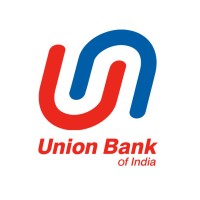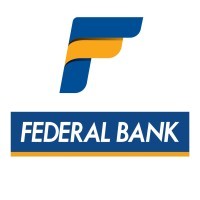
Union Bank of India Company Cyber Security Posture
unionbankofindia.co.inUnion Bank of India is one of the leading public sector banks of the country. The Bank is a listed entity, and the Government of India holds 74.76 percent in Bank’s total paid-up capital. The Bank, having its headquarters at Mumbai (India), was registered on November 11, 1919 as a limited company. On 1st April 2020, Andhra Bank and Corporation Bank were amalgamated into Union Bank of India. Our Bank has a network of 8,400+ domestic branches, 9,300+ ATMs, 74,500+ employees and 19,500+ Business Correspondents . The Bank has expanded its presence across all States and Union Territories. The Bank’s total business as of 30th June 2024 stood at ₹ 21,36,405 crore, comprising ₹ 12,24,191 crore of deposits and ₹ 9,12,214 crore of advances. The Bank also has 2 overseas branches at Dubai International Financial Centre (UAE) & Sydney (Australia); 1 banking subsidiary at London (UK); 1 banking joint venture in Malaysia; 4 para-banking subsidiaries (domestic); 2 joint ventures and 1 associate - Chaitanya Godavari Gramin Bank. Union Bank of India is the first large public sector bank in the country to have implemented 100% core banking solution. The Bank has received several awards and recognition for its prowess in technology, digital banking, financial inclusion, MSME and development of human resources. Do not share your Mobile Number, Account Details, Card details or any other Personal Detail publicly on social media. Avoid clicking unknown links or downloading APKs from emails or messages. Stay alert and cyber-safe
UBI Company Details
unionbankofindia
19099 employees
265159.0
522
Banking
unionbankofindia.co.in
Scan still pending
UNI_4467164
In-progress
Between 800 and 900
This score is AI-generated and less favored by cyber insurers, who prefer the TPRM score.
 UBI Global Score
UBI Global Score.png)

Union Bank of India Company Scoring based on AI Models
| Model Name | Date | Description | Current Score Difference | Score |
|---|---|---|---|---|
| AVERAGE-Industry | 03-12-2025 | This score represents the average cybersecurity rating of companies already scanned within the same industry. It provides a benchmark to compare an individual company's security posture against its industry peers. | N/A | Between 800 and 900 |
Union Bank of India Company Cyber Security News & History
| Entity | Type | Severity | Impact | Seen | Url ID | Details | View |
|---|
Union Bank of India Company Subsidiaries

Union Bank of India is one of the leading public sector banks of the country. The Bank is a listed entity, and the Government of India holds 74.76 percent in Bank’s total paid-up capital. The Bank, having its headquarters at Mumbai (India), was registered on November 11, 1919 as a limited company. On 1st April 2020, Andhra Bank and Corporation Bank were amalgamated into Union Bank of India. Our Bank has a network of 8,400+ domestic branches, 9,300+ ATMs, 74,500+ employees and 19,500+ Business Correspondents . The Bank has expanded its presence across all States and Union Territories. The Bank’s total business as of 30th June 2024 stood at ₹ 21,36,405 crore, comprising ₹ 12,24,191 crore of deposits and ₹ 9,12,214 crore of advances. The Bank also has 2 overseas branches at Dubai International Financial Centre (UAE) & Sydney (Australia); 1 banking subsidiary at London (UK); 1 banking joint venture in Malaysia; 4 para-banking subsidiaries (domestic); 2 joint ventures and 1 associate - Chaitanya Godavari Gramin Bank. Union Bank of India is the first large public sector bank in the country to have implemented 100% core banking solution. The Bank has received several awards and recognition for its prowess in technology, digital banking, financial inclusion, MSME and development of human resources. Do not share your Mobile Number, Account Details, Card details or any other Personal Detail publicly on social media. Avoid clicking unknown links or downloading APKs from emails or messages. Stay alert and cyber-safe
Access Data Using Our API

Get company history
.png)
UBI Cyber Security News
Anil Kuril steps into new role as CISO and Head of Data Protection Office at Union Bank
In a landmark move, Anil Kuril, who has served as the Chief Technology Officer and Chief Digital Officer at Union Bank of India, has ...
Union Bank of India rolls out hackathon in cybersecurity, GenAI
Union Bank of India's initiative comes as the banking sector accelerates its digital transformation initiatives. It further aligns with the ...
Union Bank of India Appoints Anil Kuril as CISO and Head of Data Protection Office
Kuril, a well-known IT and cybersecurity professional with nearly three decades of experience, takes on the role after serving as chief general ...
Union Bank Elevates Anil Kuril As Chief Information Security Officer & Head Of Data Protection
Union Bank of India elevates Anil Kuril as the Chief Information Security Officer and Head of Data Protection. With this appointment, the firm ...
Citrix RDP Access, Jenkins Exploit, and Major Database Leak of Union Bank of India
SOCRadar Dark Web Team detected a post on a hacker forum where an exploit for the newly identified vulnerability CVE-2024-43044 in Jenkins has ...
India-Pak tensions: Banks told to ensure sufficient cash in ATMs, strengthen systems to tackle cyber threats
Amid escalating tensions between India and Pakistan, the Department of Financial Services (DFS) has asked banks to strengthen their internal ...
Financial sector rushes to fortify cyber defence
It's not just banks but companies have also witnessed a surge in cyber threats over the past few days. “Recent developments have indicated a ...
Union Bank SO Admit Card 2025 Released At unionbankofindia.co.in; Exam On June 22
The admit cards for the 2025 Specialist Officer (SO) recruitment exam have been made available by Union Bank of India.
Viral post claiming that ATMs across India would remain closed for 2–3 days due to a ransomware cyberattack by Pakistan is false
On 08 May 2025, PIB clarified in a post on X (formerly Twitter) that the claim regarding ATM closures is false.

UBI Similar Companies

OCBC
OCBC is the longest established Singapore bank, formed in 1932 from the merger of three local banks, the oldest of which was founded in 1912. It is now the second largest financial services group in Southeast Asia by assets and one of the world’s most highly-rated banks, with an Aa1 rating from Mood

Prominvestbank
Joint Stock Commercial Industrial & Investment Bank (close stock company) was formed in August 1992. The overall history of the bank is more than 85 years. Significant loans to the metallurgy, mechanical engineering, transport, construction, agriculture contributes to the development of these bra

THE FEDERAL BANK LIMITED
Federal Bank, one of the leading private sector banks with presence across the country, began its journey from humble backgrounds to reach the stature of an institution with national prominence & character. The Bank aspires to be the most admired Bank in the country and fuelling its dreams are the 1

VakıfBank
1954 yılında, vakıf kaynaklarını ekonomik kalkınmanın gereksinimleri doğrultusunda en iyi biçimde değerlendirmek amacıyla kurulan VakıfBank, o günden bu yana çağdaş bankacılık yöntemleri ve uygulamalarıyla Türkiye’nin tasarruf düzeyinin gelişim sürecine katkıda bulunmaktadır. VakıfBank; bölgesinin e

Garanti BBVA
With a digitalization and people oriented vision, we contribute to our economy and society. We make great efforts to help you make the best financial decisions by offering you the opportunities of the future with our dynamic business model, pioneering technology and innovative products and services.

Türkiye İş Bankası
In the nearly 100 years since its founding by the Great Leader Mustafa Kemal Atatürk on August 26, 1924, İşbank has undertaken various roles and made significant contributions to the development of our country in many fields, especially in industry and trade. İşbank offers products and services to

Frequently Asked Questions (FAQ) on Cybersecurity Incidents
UBI CyberSecurity History Information
Total Incidents: According to Rankiteo, UBI has faced 0 incidents in the past.
Incident Types: As of the current reporting period, UBI has not encountered any cybersecurity incidents.
Total Financial Loss: The total financial loss from these incidents is estimated to be {total_financial_loss}.
Cybersecurity Posture: The company's overall cybersecurity posture is described as Union Bank of India is one of the leading public sector banks of the country. The Bank is a listed entity, and the Government of India holds 74.76 percent in Bank’s total paid-up capital. The Bank, having its headquarters at Mumbai (India), was registered on November 11, 1919 as a limited company. On 1st April 2020, Andhra Bank and Corporation Bank were amalgamated into Union Bank of India. Our Bank has a network of 8,400+ domestic branches, 9,300+ ATMs, 74,500+ employees and 19,500+ Business Correspondents . The Bank has expanded its presence across all States and Union Territories. The Bank’s total business as of 30th June 2024 stood at ₹ 21,36,405 crore, comprising ₹ 12,24,191 crore of deposits and ₹ 9,12,214 crore of advances. The Bank also has 2 overseas branches at Dubai International Financial Centre (UAE) & Sydney (Australia); 1 banking subsidiary at London (UK); 1 banking joint venture in Malaysia; 4 para-banking subsidiaries (domestic); 2 joint ventures and 1 associate - Chaitanya Godavari Gramin Bank. Union Bank of India is the first large public sector bank in the country to have implemented 100% core banking solution. The Bank has received several awards and recognition for its prowess in technology, digital banking, financial inclusion, MSME and development of human resources. Do not share your Mobile Number, Account Details, Card details or any other Personal Detail publicly on social media. Avoid clicking unknown links or downloading APKs from emails or messages. Stay alert and cyber-safe.
Detection and Response: The company detects and responds to cybersecurity incidents through {description_of_detection_and_response_process}.
Incident Details
Incident 1: Ransomware Attack
Title: {Incident_Title}
Description: {Brief_description_of_the_incident}
Date Detected: {Detection_Date}
Date Publicly Disclosed: {Disclosure_Date}
Date Resolved: {Resolution_Date}
Type: {Type_of_Attack}
Attack Vector: {Attack_Vector}
Vulnerability Exploited: {Vulnerability}
Threat Actor: {Threat_Actor}
Motivation: {Motivation}
Incident 2: Data Breach
Title: {Incident_Title}
Description: {Brief_description_of_the_incident}
Date Detected: {Detection_Date}
Date Publicly Disclosed: {Disclosure_Date}
Date Resolved: {Resolution_Date}
Type: {Type_of_Attack}
Attack Vector: {Attack_Vector}
Vulnerability Exploited: {Vulnerability}
Threat Actor: {Threat_Actor}
Motivation: {Motivation}
Common Attack Types: As of now, the company has not encountered any reported incidents involving common cyberattacks.
Identification of Attack Vectors: The company identifies the attack vectors used in incidents through {description_of_identification_process}.
Impact of the Incidents
Incident 1: Ransomware Attack
Financial Loss: {Financial_Loss}
Data Compromised: {Data_Compromised}
Systems Affected: {Systems_Affected}
Downtime: {Downtime}
Operational Impact: {Operational_Impact}
Conversion Rate Impact: {Conversion_Rate_Impact}
Revenue Loss: {Revenue_Loss}
Customer Complaints: {Customer_Complaints}
Brand Reputation Impact: {Brand_Reputation_Impact}
Legal Liabilities: {Legal_Liabilities}
Identity Theft Risk: {Identity_Theft_Risk}
Payment Information Risk: {Payment_Information_Risk}
Incident 2: Data Breach
Financial Loss: {Financial_Loss}
Data Compromised: {Data_Compromised}
Systems Affected: {Systems_Affected}
Downtime: {Downtime}
Operational Impact: {Operational_Impact}
Conversion Rate Impact: {Conversion_Rate_Impact}
Revenue Loss: {Revenue_Loss}
Customer Complaints: {Customer_Complaints}
Brand Reputation Impact: {Brand_Reputation_Impact}
Legal Liabilities: {Legal_Liabilities}
Identity Theft Risk: {Identity_Theft_Risk}
Payment Information Risk: {Payment_Information_Risk}
Average Financial Loss: The average financial loss per incident is {average_financial_loss}.
Commonly Compromised Data Types: The types of data most commonly compromised in incidents are {list_of_commonly_compromised_data_types}.
Incident 1: Ransomware Attack
Entity Name: {Entity_Name}
Entity Type: {Entity_Type}
Industry: {Industry}
Location: {Location}
Size: {Size}
Customers Affected: {Customers_Affected}
Incident 2: Data Breach
Entity Name: {Entity_Name}
Entity Type: {Entity_Type}
Industry: {Industry}
Location: {Location}
Size: {Size}
Customers Affected: {Customers_Affected}
Response to the Incidents
Incident 1: Ransomware Attack
Incident Response Plan Activated: {Yes/No}
Third Party Assistance: {Yes/No}
Law Enforcement Notified: {Yes/No}
Containment Measures: {Containment_Measures}
Remediation Measures: {Remediation_Measures}
Recovery Measures: {Recovery_Measures}
Communication Strategy: {Communication_Strategy}
Adaptive Behavioral WAF: {Adaptive_Behavioral_WAF}
On-Demand Scrubbing Services: {On_Demand_Scrubbing_Services}
Network Segmentation: {Network_Segmentation}
Enhanced Monitoring: {Enhanced_Monitoring}
Incident 2: Data Breach
Incident Response Plan Activated: {Yes/No}
Third Party Assistance: {Yes/No}
Law Enforcement Notified: {Yes/No}
Containment Measures: {Containment_Measures}
Remediation Measures: {Remediation_Measures}
Recovery Measures: {Recovery_Measures}
Communication Strategy: {Communication_Strategy}
Adaptive Behavioral WAF: {Adaptive_Behavioral_WAF}
On-Demand Scrubbing Services: {On_Demand_Scrubbing_Services}
Network Segmentation: {Network_Segmentation}
Enhanced Monitoring: {Enhanced_Monitoring}
Incident Response Plan: The company's incident response plan is described as {description_of_incident_response_plan}.
Third-Party Assistance: The company involves third-party assistance in incident response through {description_of_third_party_involvement}.
Data Breach Information
Incident 2: Data Breach
Type of Data Compromised: {Type_of_Data}
Number of Records Exposed: {Number_of_Records}
Sensitivity of Data: {Sensitivity_of_Data}
Data Exfiltration: {Yes/No}
Data Encryption: {Yes/No}
File Types Exposed: {File_Types}
Personally Identifiable Information: {Yes/No}
Prevention of Data Exfiltration: The company takes the following measures to prevent data exfiltration: {description_of_prevention_measures}.
Handling of PII Incidents: The company handles incidents involving personally identifiable information (PII) through {description_of_handling_process}.
Ransomware Information
Incident 1: Ransomware Attack
Ransom Demanded: {Ransom_Amount}
Ransom Paid: {Ransom_Paid}
Ransomware Strain: {Ransomware_Strain}
Data Encryption: {Yes/No}
Data Exfiltration: {Yes/No}
Ransom Payment Policy: The company's policy on paying ransoms in ransomware incidents is described as {description_of_ransom_payment_policy}.
Data Recovery from Ransomware: The company recovers data encrypted by ransomware through {description_of_data_recovery_process}.
Regulatory Compliance
Incident 1: Ransomware Attack
Regulations Violated: {Regulations_Violated}
Fines Imposed: {Fines_Imposed}
Legal Actions: {Legal_Actions}
Regulatory Notifications: {Regulatory_Notifications}
Incident 2: Data Breach
Regulations Violated: {Regulations_Violated}
Fines Imposed: {Fines_Imposed}
Legal Actions: {Legal_Actions}
Regulatory Notifications: {Regulatory_Notifications}
Regulatory Frameworks: The company complies with the following regulatory frameworks regarding cybersecurity: {list_of_regulatory_frameworks}.
Ensuring Regulatory Compliance: The company ensures compliance with regulatory requirements through {description_of_compliance_measures}.
Lessons Learned and Recommendations
Incident 1: Ransomware Attack
Lessons Learned: {Lessons_Learned}
Incident 2: Data Breach
Lessons Learned: {Lessons_Learned}
Incident 1: Ransomware Attack
Recommendations: {Recommendations}
Incident 2: Data Breach
Recommendations: {Recommendations}
Key Lessons Learned: The key lessons learned from past incidents are {list_of_key_lessons_learned}.
Implemented Recommendations: The company has implemented the following recommendations to improve cybersecurity: {list_of_implemented_recommendations}.
References
Additional Resources: Stakeholders can find additional resources on cybersecurity best practices at {list_of_additional_resources}.
Investigation Status
Incident 1: Ransomware Attack
Investigation Status: {Investigation_Status}
Incident 2: Data Breach
Investigation Status: {Investigation_Status}
Communication of Investigation Status: The company communicates the status of incident investigations to stakeholders through {description_of_communication_process}.
Stakeholder and Customer Advisories
Incident 1: Ransomware Attack
Stakeholder Advisories: {Stakeholder_Advisories}
Customer Advisories: {Customer_Advisories}
Incident 2: Data Breach
Stakeholder Advisories: {Stakeholder_Advisories}
Customer Advisories: {Customer_Advisories}
Advisories Provided: The company provides the following advisories to stakeholders and customers following an incident: {description_of_advisories_provided}.
Initial Access Broker
Incident 1: Ransomware Attack
Entry Point: {Entry_Point}
Reconnaissance Period: {Reconnaissance_Period}
Backdoors Established: {Backdoors_Established}
High Value Targets: {High_Value_Targets}
Data Sold on Dark Web: {Yes/No}
Incident 2: Data Breach
Entry Point: {Entry_Point}
Reconnaissance Period: {Reconnaissance_Period}
Backdoors Established: {Backdoors_Established}
High Value Targets: {High_Value_Targets}
Data Sold on Dark Web: {Yes/No}
Monitoring and Mitigation of Initial Access Brokers: The company monitors and mitigates the activities of initial access brokers through {description_of_monitoring_and_mitigation_measures}.
Post-Incident Analysis
Incident 1: Ransomware Attack
Root Causes: {Root_Causes}
Corrective Actions: {Corrective_Actions}
Incident 2: Data Breach
Root Causes: {Root_Causes}
Corrective Actions: {Corrective_Actions}
Post-Incident Analysis Process: The company's process for conducting post-incident analysis is described as {description_of_post_incident_analysis_process}.
Corrective Actions Taken: The company has taken the following corrective actions based on post-incident analysis: {list_of_corrective_actions_taken}.
Additional Questions
General Information
Ransom Payment History: The company has {paid/not_paid} ransoms in the past.
Last Ransom Demanded: The amount of the last ransom demanded was {last_ransom_amount}.
Last Attacking Group: The attacking group in the last incident was {last_attacking_group}.
Incident Details
Most Recent Incident Detected: The most recent incident detected was on {most_recent_incident_detected_date}.
Most Recent Incident Publicly Disclosed: The most recent incident publicly disclosed was on {most_recent_incident_publicly_disclosed_date}.
Most Recent Incident Resolved: The most recent incident resolved was on {most_recent_incident_resolved_date}.
Impact of the Incidents
Highest Financial Loss: The highest financial loss from an incident was {highest_financial_loss}.
Most Significant Data Compromised: The most significant data compromised in an incident was {most_significant_data_compromised}.
Most Significant System Affected: The most significant system affected in an incident was {most_significant_system_affected}.
Response to the Incidents
Third-Party Assistance in Most Recent Incident: The third-party assistance involved in the most recent incident was {third_party_assistance_in_most_recent_incident}.
Containment Measures in Most Recent Incident: The containment measures taken in the most recent incident were {containment_measures_in_most_recent_incident}.
Data Breach Information
Most Sensitive Data Compromised: The most sensitive data compromised in a breach was {most_sensitive_data_compromised}.
Number of Records Exposed: The number of records exposed in the most significant breach was {number_of_records_exposed}.
Ransomware Information
Highest Ransom Demanded: The highest ransom demanded in a ransomware incident was {highest_ransom_demanded}.
Highest Ransom Paid: The highest ransom paid in a ransomware incident was {highest_ransom_paid}.
Regulatory Compliance
Highest Fine Imposed: The highest fine imposed for a regulatory violation was {highest_fine_imposed}.
Most Significant Legal Action: The most significant legal action taken for a regulatory violation was {most_significant_legal_action}.
Lessons Learned and Recommendations
Most Significant Lesson Learned: The most significant lesson learned from past incidents was {most_significant_lesson_learned}.
Most Significant Recommendation Implemented: The most significant recommendation implemented to improve cybersecurity was {most_significant_recommendation_implemented}.
References
Most Recent Source: The most recent source of information about an incident is {most_recent_source}.
Most Recent URL for Additional Resources: The most recent URL for additional resources on cybersecurity best practices is {most_recent_url}.
Investigation Status
Current Status of Most Recent Investigation: The current status of the most recent investigation is {current_status_of_most_recent_investigation}.
Stakeholder and Customer Advisories
Most Recent Stakeholder Advisory: The most recent stakeholder advisory issued was {most_recent_stakeholder_advisory}.
Most Recent Customer Advisory: The most recent customer advisory issued was {most_recent_customer_advisory}.
Initial Access Broker
Most Recent Entry Point: The most recent entry point used by an initial access broker was {most_recent_entry_point}.
Most Recent Reconnaissance Period: The most recent reconnaissance period for an incident was {most_recent_reconnaissance_period}.
Post-Incident Analysis
Most Significant Root Cause: The most significant root cause identified in post-incident analysis was {most_significant_root_cause}.
Most Significant Corrective Action: The most significant corrective action taken based on post-incident analysis was {most_significant_corrective_action}.
What Do We Measure?
















Every week, Rankiteo analyzes billions of signals to give organizations a sharper, faster view of emerging risks. With deeper, more actionable intelligence at their fingertips, security teams can outpace threat actors, respond instantly to Zero-Day attacks, and dramatically shrink their risk exposure window.
These are some of the factors we use to calculate the overall score:
Identify exposed access points, detect misconfigured SSL certificates, and uncover vulnerabilities across the network infrastructure.
Gain visibility into the software components used within an organization to detect vulnerabilities, manage risk, and ensure supply chain security.
Monitor and manage all IT assets and their configurations to ensure accurate, real-time visibility across the company's technology environment.
Leverage real-time insights on active threats, malware campaigns, and emerging vulnerabilities to proactively defend against evolving cyberattacks.




